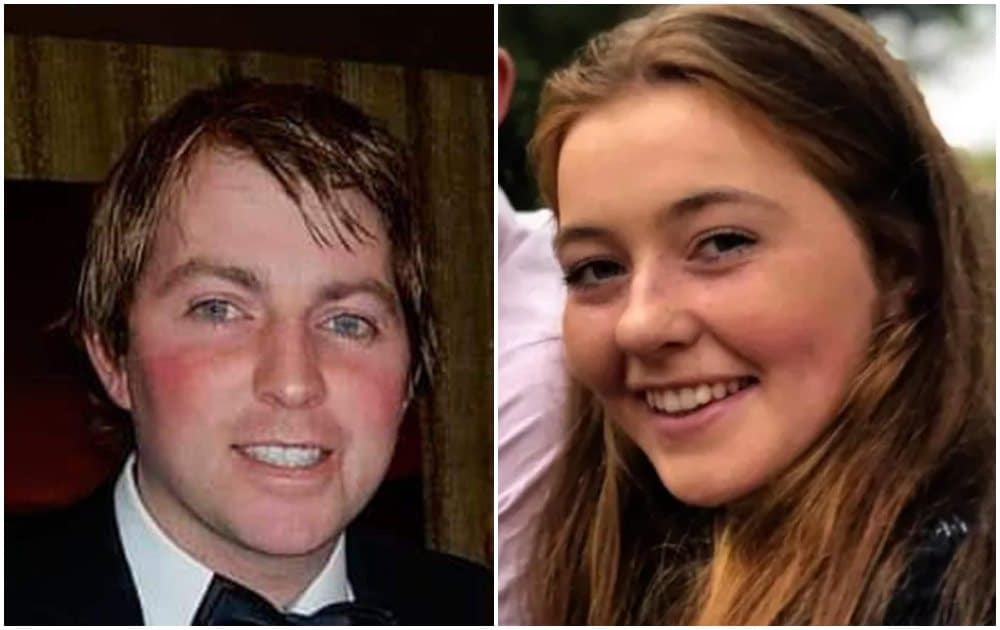
With the controversy surrounding the Katie Simpson murder investigation continuing, it has emerged further complaints have been made to the Police Ombudsman over the conduct of two senior officers, as more details became known.
Jonathan Creswell wove a tapestry of lies which were accepted by many, but not all and while the complainants don’t wish to jeopardise the investigation process, they say they were required to take action due to the catalogue of failings and ineptitude.
Creswell’s behaviour painted an obvious picture of inconsistency, deceit and cover-up, including the three versions he gave of rescuing Katie, none of which were credible.
Even his conduct in those first hours merited further investigation.
One indicator came in Creswell’s conversation with the ambulance call-handler in which he contended he had laid Katie flat on her back and was doing CPR.
He told police of finding Katie hanging by a cord which he “cut”, got her to the floor, attempted CPR, then put her in the “rear of his car”.
Katie was in fact found upright in the front passenger seat of her own car and not laid flat.
He later switched from cutting the ligature to “unclipping” it and in a third version took her weight and tried to slip her free.
Asked at the hospital why he returned to the house instead of following the ambulance he said: “I had to get my friend”, although later claimed it was because he wasn’t insured to drive Katie’s car.
Despite this, he drove his children to his mother’s home in Katie’s car before allegedly finding her hanging, something he must have known he would do because co-defendant, Rose de Montmorency-Wright, took his car to work that day.
Creswell already had live penalty points for previously driving without insurance at that time.
He had in fact returned to the house to shower, arriving simultaneously with co-defendant, Hayley Robb, who took his clothes to be washed under instructions not to tell anyone.
She drove him to the hospital where he was met by police.
When officers spoke to Hayley in her car, she failed to disclose Creswell’s clothing lay feet behind her in the boot.
Creswell’s behaviour in the hospital was suspicious and he appeared to be the person “most invested in Katie’s condition”.
He denied knowing about her phone, then finally claimed he found it when he went back to the house, and hid it as “he didn’t want anyone to find it”.
The pathologist who carried out the postmortem later felt his ability to comment on the injuries was impacted and identified a pattern “not obvious at the time of autopsy”, suggestive of Katie being repeatedly assaulted with a weapon, in one or more or attacks over many hours.
At Katie’s wake, Creswell remained vigilant around the body and made lewd, inappropriate remarks to young females.
He later claimed Katie planned her suicide and had made a previous attempt the night before in her mother’s house, leaving a mark on the banister which was “shaky”.
On another occasion he claimed to have found a search on Katie’s phone on how to make a noose, but why he had her phone and what became of it didn’t seem to be an issue.
When arrested Creswell maintained his claim that Katie was hanging, and alleged she previously attempted suicide by crashing her car.
He suggested she was suffering from low esteem at the time of her death and this worried him so much he told co-defendant Jill Robinson.
This is contrary to what Creswell told police at the hospital where he insisted Katie showed no signs of low mood or any other mental health issues.
Just from this sample of evidence, it’s difficult to comprehend why police were not at the very least suspicious.
The disclosures caused significant distress to those who tried to alert police.
They feel undermined and ignored, leaving no option but to raise their concerns with the Police Ombudsman.
The PSNI have indicated they will not be commenting while investigations into officer conduct are underway.





